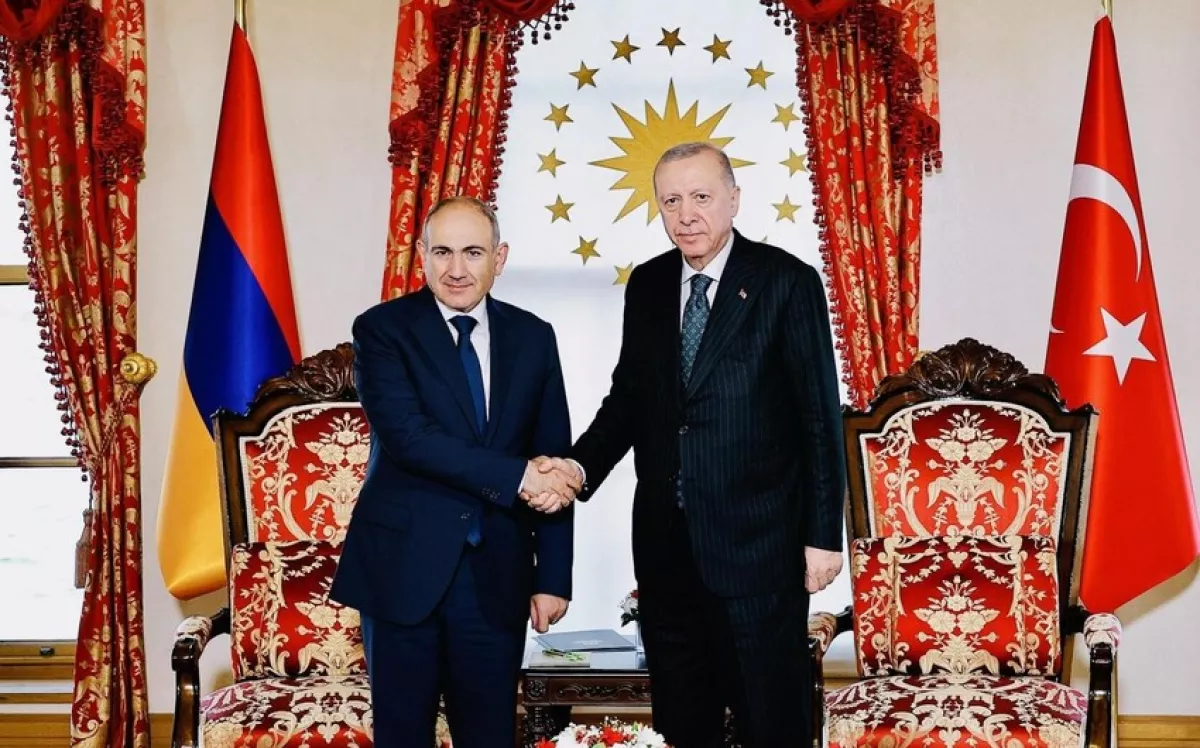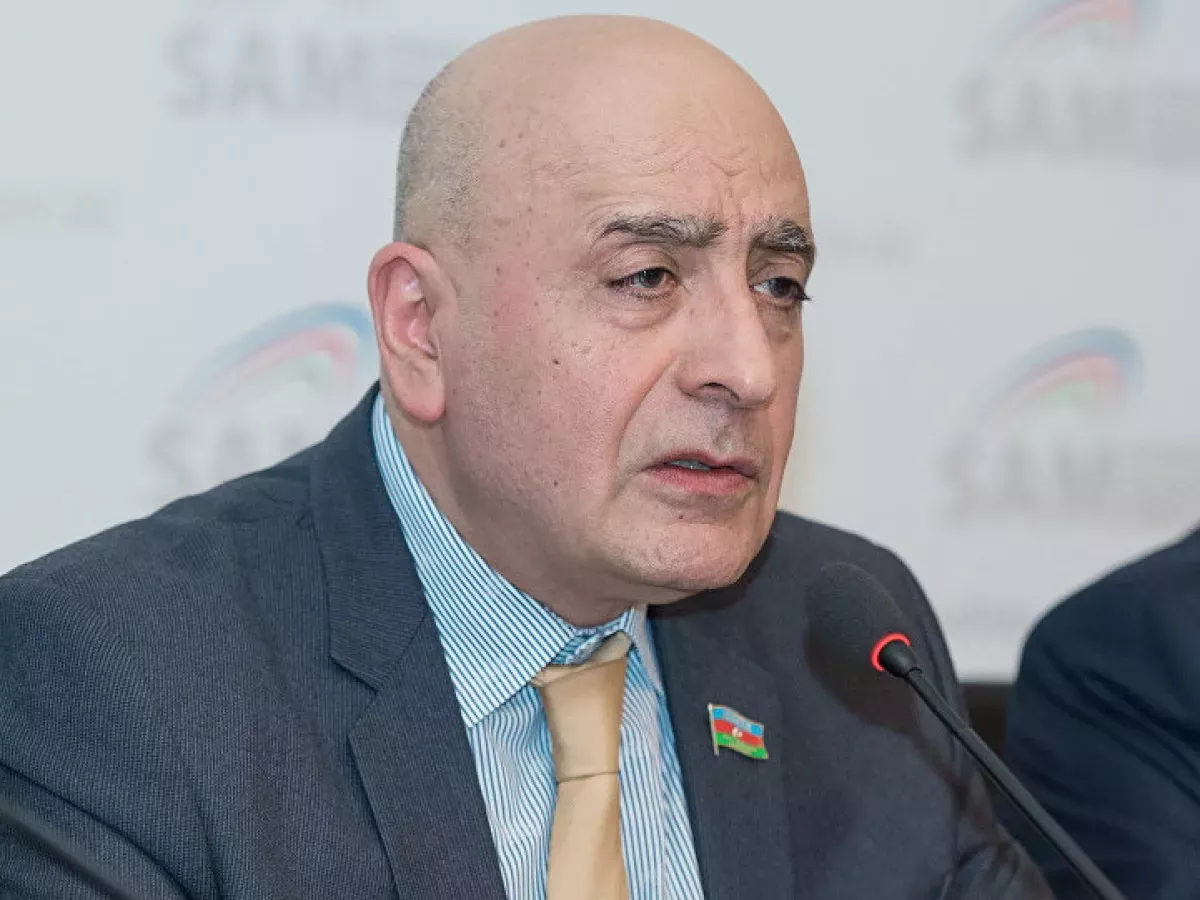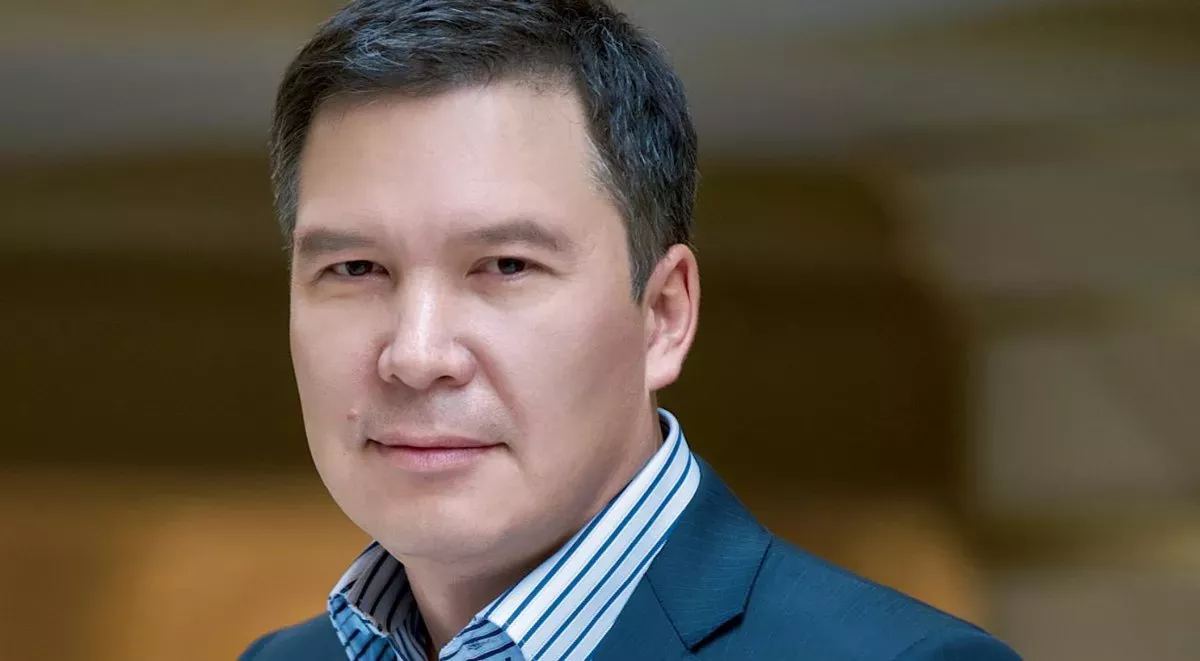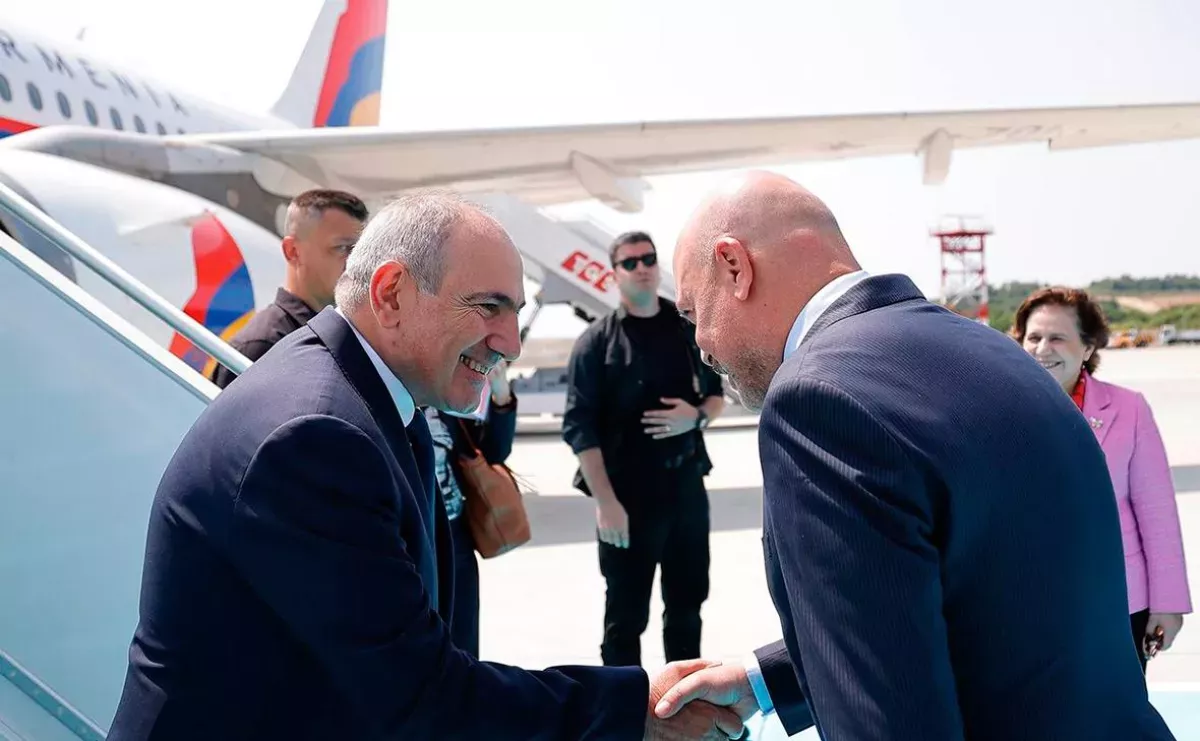Pashinyan in Türkiye: Is the South Caucasus on the brink of momentous events? Expert opinions on Caliber.Az
On June 20, a high-level meeting took place in Istanbul between Armenian Prime Minister Nikol Pashinyan and Turkish President Recep Tayyip Erdoğan, marking a significant development in efforts to normalise relations between the two neighbouring countries. According to media reports, the meeting was held in a narrow format at the working office of the Dolmabahçe Palace.
During the talks, President Erdoğan emphasised the importance of the agreements reached in the peace negotiations between Azerbaijan and Armenia, underscoring Türkiye’s commitment to promoting regional and global stability. The two leaders also discussed further steps towards the normalisation of Armenian-Turkish relations. Erdoğan reaffirmed that Ankara continues to pursue all diplomatic avenues to support peace in the South Caucasus.

In a post on X, Prime Minister Pashinyan described the meeting as an “in-depth exchange,” during which the sides discussed the Armenia–Türkiye normalisation process, regional developments, and the importance of sustained dialogue. He reiterated Armenia’s commitment to peace and regional stability.
These developments make it all the more relevant to ask: what concrete outcomes is Pashinyan seeking from his engagement with Türkiye? What priorities is Yerevan advancing through these high-stakes talks? Caliber.Az correspondent sought answers to these questions from leading experts.

According to Rasim Musabayov, Azerbaijani MP and political analyst, the main goal of Pashinyan’s visit is to negotiate the establishment of diplomatic relations with Türkiye and the opening of the border.
“Given what is currently happening in Iran, Pashinyan’s strained relations with Russia, and the fact that Georgia is drifting away from the European project, Armenia is left with virtually no political options.
It is extremely important for Armenia in general—and for Pashinyan and his government in particular—to establish relations with Türkiye and open the border, as the only stable route to Europe now is through the Republic of Türkiye. However, Türkiye has its own conditions: the restoration of relations with Armenia depends on the signing of a peace treaty and the normalisation of relations with Azerbaijan. Naturally, President Ilham Aliyev’s recent visit to Türkiye also carries its own significance. So, Pashinyan will have to play by the rules if he wants to secure any prospects for himself and his country,” Musabayov stated.

Turkish-Kazakh politician and political analyst Serikzhan Mambetalin, founder of the Great Turan Union Foundation, noted that Pashinyan’s visit should not be seen merely as a diplomatic gesture, but rather as part of a broader strategic agenda aimed at normalising relations between Armenia and Türkiye.
“Pashinyan was not invited to Ankara, but to Istanbul — and that carries a particular symbolism. This city is home to a large Armenian diaspora, with Armenian schools, churches, and cultural centres. Many Armenians living in Türkiye have never even been to Armenia — they are so deeply integrated into Turkish society. It’s especially noteworthy that a significant portion of Istanbul’s jewellery trade is concentrated in Armenian hands. That’s why Pashinyan’s visit can be described as historic. Previously, he had only visited Türkiye once — for Erdoğan’s inauguration. This time, he came with a full delegation, which means real negotiations are taking place,” the politician said.
Mambetalin also drew attention to the international context surrounding Pashinyan’s visit: “Today, Türkiye is one of the few strong players willing to engage constructively with Armenia. Iran, which had long supported the Armenian side, is now preoccupied with its conflict with Israel and is depleting its resources. As a result, it can no longer act as a guarantor of Yerevan’s interests. Pashinyan recognises this and is acting pragmatically. He understands that the conflict must be resolved—yet in a way that yields maximum benefit for the Armenian people and economy.”

Speaking about practical matters, the expert highlighted the importance of infrastructure projects, above all the Zangezur Corridor: “The issue of opening the Zangezur Corridor has been on the agenda for some time, and it is clear that it will continue to be discussed. For Armenia, this is a chance to bargain for favourable terms.
When it comes to investment, aside from Türkiye and the Turkic world, Armenia has virtually no remaining viable partners. Russia is out of the game due to its internal problems. Pashinyan understands that geography demands pragmatism. Therefore, opening the borders with Türkiye and integrating into the Middle Corridor are strategic steps of great importance for Armenia.”
The political analyst also pointed out that Armenia is not a critical link in the Middle Corridor route, which puts additional pressure on Yerevan to act quickly.
“In reality, Zangezur is not the only possible route—there are alternatives through Georgia and Iran,” Mambetalin explained. “However, considering the potential change of leadership in the Islamic Republic of Iran and the country’s internal tensions, Armenia’s role as a transit hub could ultimately become secondary. Pashinyan understands that he must act now—before it’s too late.”
He also drew attention to the symbolism behind the visits of the two leaders: “Just a day before Pashinyan’s arrival, Azerbaijani President Ilham Aliyev was in Türkiye, inaugurating housing in Kahramanmaraş built after the earthquake. This, too, sends an important message to the Armenian prime minister and shapes the broader context of the negotiations. It is clear that positions are being coordinated. I am confident that we are on the threshold of a peace agreement between Baku and Yerevan.”
In conclusion, Mambetalin emphasised the emergence of Pashinyan’s political independence—manifesting more clearly now than ever before.
“Pashinyan is arguably the first leader in modern Armenian history to behave as a truly independent politician. Before him, all Armenian leaders looked to Moscow for direction. Moreover, the policy of confrontation with Türkiye was actively fuelled by the Armenian diaspora in the West—particularly in France and California. But Pashinyan is now taking bold steps, realising that without a peace agreement and the full restoration of relations with Azerbaijan, Armenia has no future—nor does the wider region. Unresolved territorial conflicts will always remain flashpoints for potential destabilisation. And such hotspots only serve the interests of external powers seeking to undermine stability in the South Caucasus,” the expert concluded.








